HONG KONG SAR
The announced closure of Hong Kong’s legal ivory market is welcome but law enforcement agencies need to give greater priority to wildlife crime and increase international cooperation to disrupt organised criminal networks.



Is there a need to revise the existing NIAP or develop a new one? ‘YES‘

BEST PRACTICE
In 2018, Hong Kong adopted new legislation increasing penalties on indictment from a maximum of HK$5,000,000 and two years’ imprisonment to a maximum of HK$10,000,000 and 10 years’ imprisonment. Pre-convention ivory imports and re-exports were banned from 1 August 2018. Hong Kong has also improved detection controls and increased the focus on air cargo and passengers, demonstrated by the increase in ivory seizures.
Hong Kong has taken the welcome step of banning possession for commercial purposes of all ivory (except antique ivory), although the five-year timescale under which the ban comes into force in 2021 is unreasonably long.
More than 28 tonnes of seized ivory has been disposed of in monthly tranches since May 2014, at a rate of 1.5 tonnes in each round of incineration.
KEY CONCERNS
One of the world’s largest domestic ivory markets
According to the ETIS report to CoP17, large stocks of worked ivory products remain in numerous retail outlets in the city. Hong Kong’s ivory licensing system has historically been fraught with significant loopholes enabling illegal tusks to enter into existing stockpiles thereby enabling illegal ivory trafficking, although the situation is improving. Tourist buyers from mainland China and South Korea dominate retail ivory sales, even though import back to those countries without a licence is illegal. While Hong Kong’s domestic ivory ban is welcome, it is a concern that it will only come into full force in 2021.
Lack of prosecution of mid-high level traffickers
Hong Kong has been implicated in the global seizure of 29,069kg of ivory since 2010, roughly equivalent to ivory sourced from 4,338 elephants. Hong Kong is a key transit route for ivory smuggled from Africa into the Chinese mainland. While there have been some convictions resulting from seizures carried out by Hong Kong customs, this has not been sufficient to address the significant organised level of criminality involved in ivory trafficking through Hong Kong. This situation is compounded by the gaps in legislation and enforcement outlined below.
Inadequate legislation to deal with all aspects of wildlife trafficking
Offences connected with the illegal trade in wildlife are not treated as predicate offences under the Cap 586 Protection of Endangered Species of Animals and Plants Ordinance, meaning that relevant enforcement agencies do not have the necessary tools to seize and dispose of assets. Given the increase in penalties and the Government’s recognition of the seriousness of wildlife crime, the most serious Cap 586 offences should now be incorporated into the Cap 455 Organised and Serious Crimes Ordinance (OSCO).
Insufficient priority given to wildlife crime by law enforcement agencies
The Hong Kong Police Force does not currently play a leading role in the investigation of the most serious wildlife crime. The Government should use the serious crime and financial investigation capabilities of the Joint Financial Intelligence Unit of the Hong Kong Police to interdict transnational organised wildlife crime jointly with Hong Kong Customs, as it does with other offences under OSCO.
Hong Kong is a significant transit route for large shipments of wildlife products such as ivory and pangolins, which indicate transnational organised crime involvement, making the case for wildlife crime to come under the responsibility of the Security Bureau in the same way as firearms, drugs and financial crimes.
Inadequate national and international cooperation
There is an apparent lack of cooperation between Hong Kong Customs and the Hong Kong Agriculture, Fisheries and Conservation Department (AFCD), which is the CITES Management Authority of Hong Kong. At the international level, there is inadequate cooperation that could facilitate intelligence sharing to disrupt transnational organised criminal networks involved in smuggling large volumes of ivory from Africa. Hong Kong is not party to any bi- or multi-lateral agreements with other countries that would assist in the detection, enforcement and prosecution of illegal wildlife traffickers (other than international conventions).
Outdated NIAP
Hong Kong’s NIAP was developed in 2013 and has been overtaken by developments, including its planned market closure. The NIAP is now inadequate to deal with the key problems highlighted in this report and contains no indicators by which impact can be measured. Hong Kong has also not submitted regular and adequate NIAP progress reports to the CITES Secretariat in accordance with its reporting obligations.
RECOMMENDATIONS FOR NIAP REVISION / PRIORITY AREAS OF IMPLEMENTATION:
- Amend legislation so that offences connected with the illegal wildlife trade are treated as predicate offences
- Incorporate the most serious Cap 586 offences into the Cap 455 Organised and Serious Crimes Ordinance
- Create a dedicated wildlife crime unit within Hong Kong Customs
- Place wildlife crime under the responsibility of the Security Bureau
- Ensure a leading role for the Hong Kong Police Force in the investigation of wildlife crime, particularly the Joint Financial Intelligence Unit
- Apply the ICCWC Toolkit
- Increase detection operations for illegal wildlife products at the border with mainland China
- Improve international cooperation with key source and transit countries implicated in ivory trafficking
- Conduct comprehensive awareness-raising and demand reduction campaigns within Hong Kong aimed at local residents and international visitors
Key indicators of NIAP progress
